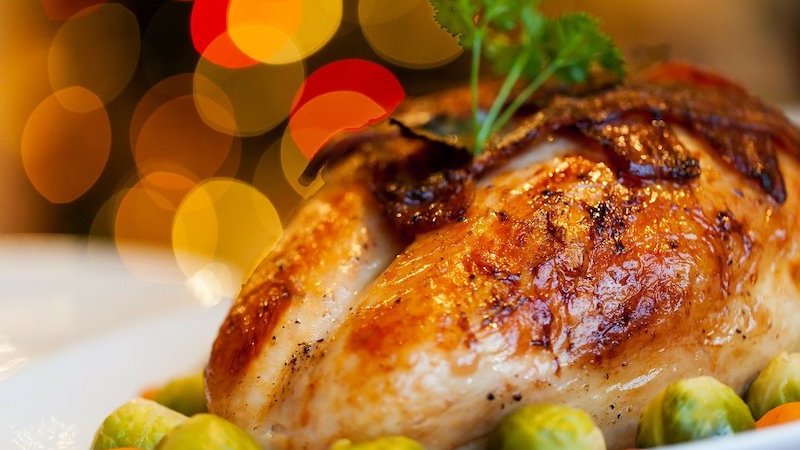Why do we always eat too much at Christmas?
- 21 December 2018
- Posted by: Michael H Hallett
- Category: Patriarchy ,

Amid all the jollity of Christmas—much of it genuine, some of it forced—it’s an awkward question to ask. It disturbs the glossy patina of pre-Christmas rituals. Putting up the tree and decorating it, Christmas markets, cups of hot mulled wine, an ever-accelerating carousel of small but high-calorie indulgences.
All of this leads us, almost imperceptibly building up our consumptive muscles, to the main event—Christmas dinner. The table, laden to the gunnels in British naval parlance, groans under a colossal oversupply of festive foodstuffs.
The guilty pleasure among my cookery books is Nigella Lawson’s Nigella Christmas (‘Easy-to-follow recipes and reassuring advice’). It is both a testament and a monument to excessive Christmas catering. I love it and it leaves me in awe of Nigella’s constitution—yet the book’s need to dole out reassuring advice as much as Armagnac-soaked devils on horsebacks suggests something is emotionally awry in our Christmas consumption.
Remember, this is nominally a festival to celebrate the birth in a manger of a God-child with a message of universal love, equality and regard for those less fortunate than ourselves.
Eat too much
Yet here we are, on the brink of Christmas once again, once more about to dive into that gluttonous pool. We don’t just eat too much at Christmas. We always eat too much at Christmas. Every year. And every year we promise that next year, we will eat less.
How many of us actually do? For most of us, the collective madness descends once again. For a collective madness it surely is. We all know it’s unhealthy. We all have free will and good intentions. Yet in the face of some powerful, unseen force, we gorge ourselves silly year after year.
All of these are clues that we are indeed dealing here with a manifestation from the collective unconscious of Christian-based societies. It is no coincidence that the most exalted festival in the Christian calendar is a festival of excess. There is nothing random about it.
Patriarchy
Underlying the Christian narrative there’s a deeper and even more powerful one—the narrative of patriarchy.
In Saharasia, geographer James DeMeo provides a wealth of data to support his thesis that patriarchy arose in response to the droughts that turned the Sahara, Arabian Peninsula and central Asia into deserts between approximately 6000 and 2000 BC. Loss of habitat forced their inhabitants to fight, creating cultures where the accumulation of surplus was the only conceivable antidote to the cruel will of the gods.
On the back of this insatiable urge to possess and consume, civilization arose.
Over time, the patriarchal urge to demonstrate one’s success—by exhibiting the surplus one has amassed—merged with the Christian high festival of the birth of Jesus. Hark! The gluttonous Christmas dinner was born.
Over time, the patriarchal urge to demonstrate success—by exhibiting the surplus one has amassed—merged with the Christian high festival of the birth of Jesus. Hark! The gluttonous Christmas dinner was born. The lambs that grace many a nativity were roasted. The three wise men were notably absent—until New Year’s Eve when we all resolve to eat less lavishly next year.
Mother wound
The urge to eat excessively, like all urges to excess, reveals another underlying aspect of patriarchy. In fact, the key aspect: the mother wound. The mother wound is a deep longing to heal the fundamental separation from healthy nurturing—physical and emotional, mother and Mother Earth—that gave rise to patriarchy.
Anytime there is an unhealthy tendency to excess, to ‘fill the hole’ inside us, it’s a glimpse of the underlying wound.
In the meantime, I’m off to my wife’s business Christmas lunch. Happy Christmas!
Image by PublicDomainPictures from Pixabay
